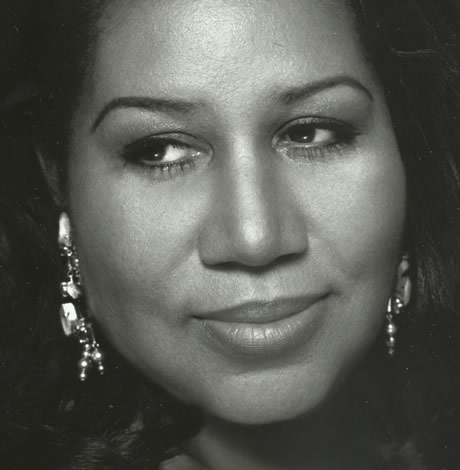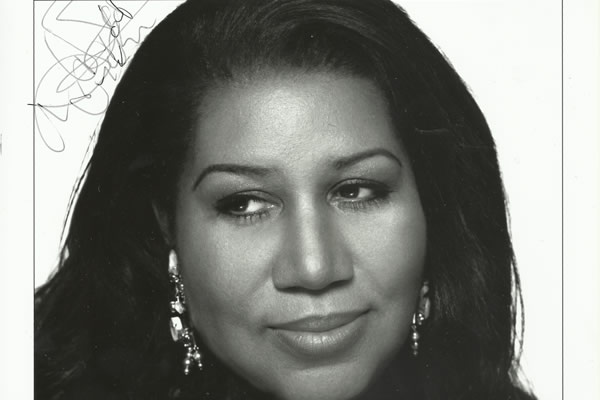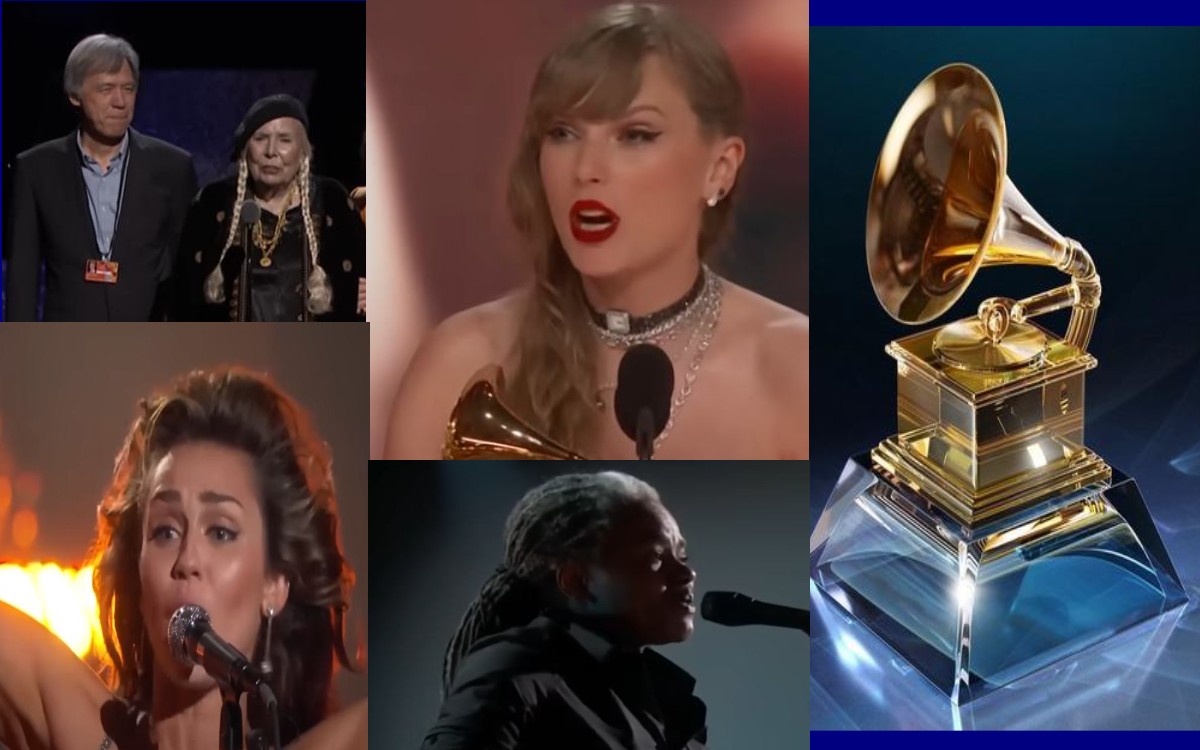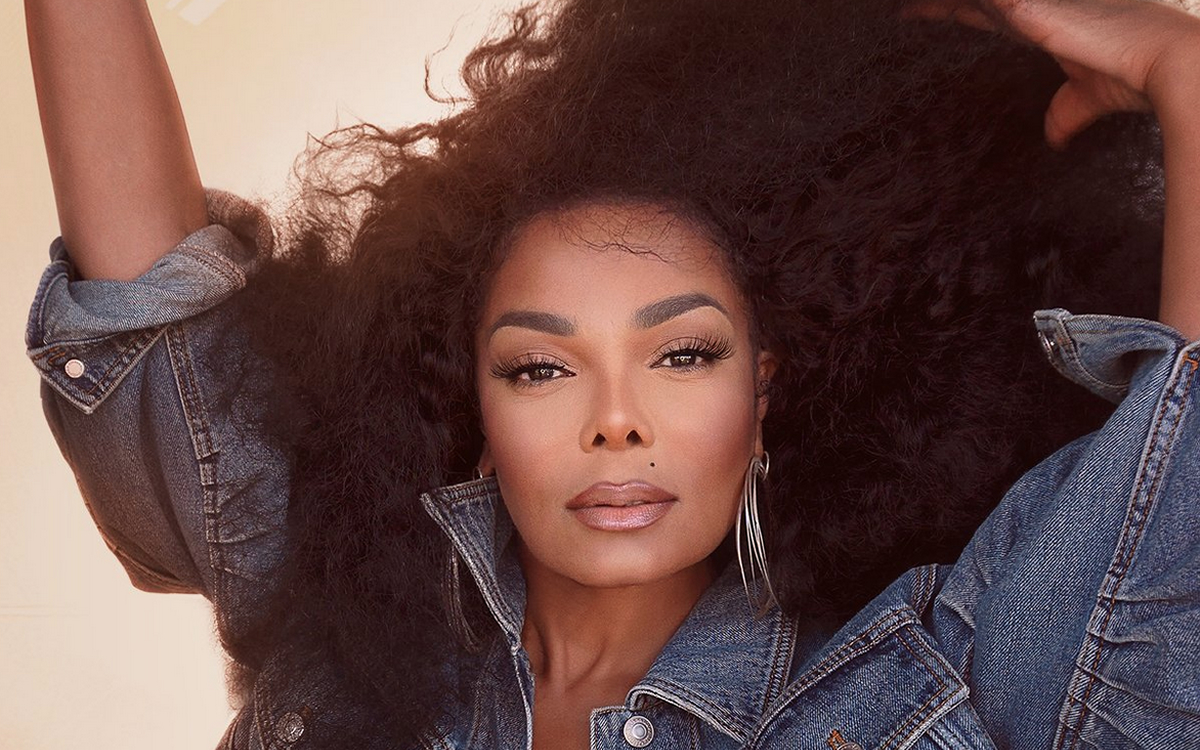Music & Concerts
Aretha’s ups and downs: a posthumous appreciation
Soul legend transcended erratic chart stats, uneven musical output


An assistant to Aretha Franklin handed out these autographed 8×10 glossies to fans gathered outside a stage door at Pittsburgh’s Heinz Hall during the singer’s ‘The Queen is On’ tour on Oct. 25, 2003. It was billed at the time as her farewell tour, but Franklin continued concertizing throughout the next 14 years. (Photo by Kwaku Alston; courtesy Arista Records)
Aretha Franklin’s career accomplishments were, of course, impressive — 18 competitive Grammys (only Beyonce with 22 and Alison Krauss with 27 have her beat among women), first woman inducted into the Rock & Roll Hall of Fame and a gravitas in the culture that meant when the U.S. wanted to put its best foot forward — Obama’s inauguration, Pope Francis’ stateside visit — Franklin was the go-to performer (oddly, those two performances were among her less memorable musically).
In a way, Franklin’s accomplishments are a bit curious. She was more a singles-oriented artist, so her various albums (often cobbled together from various recording stints not necessarily recorded with any cohesive statement in mind) never went through the roof. When the 1985 title “30 Greatest Hits” reentered the Billboard chart last week at No. 7 upon news of her death, it was her highest-charting album since her landmark gospel masterpiece “Amazing Grace” made it to no. 7 way back in 1972.
There were also long stretches where Franklin went eons between albums and even when she did release them, they sometimes barely made blips on the charts. Beyonce is, of course, an arbitrary comparison in many ways — she and Franklin are of different eras — but a Beyonce album is always an event. All six of her studio albums have hit the top spot, while Franklin never once had a no. 1-selling album. During her hottest era upon first signing with Atlantic in the late ‘60s, the top spot proved evasive with 1967’s “I Never Loved a Man” peaking at no. 2, “Aretha Arrives” at no. 5, “Lady Soul” at no. 2 and “Aretha Now” at no. 3.
Later releases sometimes tanked for decent records like “Through the Storm” (no. 55) and “What You See is What You Sweat” (no. 153), unthinkable numbers for a Beyonce or a Mariah Carey. Franklin was 47 when “Through the Storm” came out in spring, 1989. Carey was 45 when her last album, 2014’s “Me. I Am Mariah …” made it to no. 3. For some hard-to-pinpoint reason, Franklin never developed the fiercely loyal fan base that ensures veteran acts top 10 album releases even decades after their heydays.
And although Franklin’s overall Billboard Hot 100 chart heft is impressive — she held the women’s record with 73 entries until Nicki Minaj broke it (mostly with a legion of “featured artist” cameos) last year — she only hit the no. 1 spot twice (with “Respect” and “I Knew You Were Waiting For Me,” a George Michael duet) compared to Carey’s 18 no. 1 Hot 100 hits, Rihanna’s 13 and Madonna and the Supremes’ 12 each. Franklin did rack up a bounty with 20 no. 1s on the R&B chart.
And Franklin — friendly with gay men but rarely outspoken about gay rights — had a relatively meager three platinum (1 million copies certified) albums in her whole career (two were for compilations) and just one certified double platinum album (“Amazing Grace”). She never had a monster-selling legendary album like a “Rumours” (Fleetwood Mac, 20x platinum), a “Come On Over” (Shania Twain, 20x platinum), or a “Jagged Little Pill” (Alanis Morissette, 16x platinum). And yet could you imagine Twain or Morissette being called upon to perform for the pope or a historical presidential inauguration? Hardly.
What I’m getting at is that despite an impressive track record in all the usual ways we measure music industry success, Franklin’s stats are not quite what you’d think they would be considering her cultural impact.
There’s no question about it — her output is uneven. Put any of her studio albums on at random and track for track, you’re just as likely to encounter filler as grandeur. There are moments to enjoy on them all — all of which I own — but efforts like “Hey Now Hey,” “You,” “Sweet Passion,” “Almighty Fire” and “La Diva” are erratic. “A Rose is Still a Rose” (1998) was her last great album although 2003’s “So Damn Happy” is underrated and quite good. Later efforts like “This Christmas Aretha” (2008) and “A Woman Falling Out of Love” (2011) are almost painfully bad despite glimmers of magic.
So what gives exactly? In some ways I feel Franklin was underrated; in other ways I think it’s remarkable what she managed to achieve considering how up and down her overall quality — admittedly a subjective assessment — was. Franklin, especially in later years, did things her way. She would never have handed over a project to an outside producer the way, say, Loretta Lynn did with her classic “Van Lear Rose” album that Jack White produced in 2004 or the way Johnny Cash did with his American Recordings series with Rick Rubin which gave him a nice victory lap in his final years. Impresario Clive Davis held some sway with Franklin — we can largely thank him for Franklin’s final studio effort, 2014’s solid “Aretha Franklin Sings the Great Diva Classics,” but only to a point. Even some of the ‘80s work they collaborated on like “Jump To It” (1982) and “Get it Right” (1983) (both of which Luther Vandross produced) are hit and miss.
But while Franklin’s choice of material was often uneven, her interpretive abilities were nearly peerless. She knew how to unfurl her trademark improvised melismas with a finesse that never sounded overwrought as it often does in lesser hands (I’ve heard singers whoop and dip so recklessly they end up in different keys than they began). Were a lesser singer (and many have) to have taken the luxuries of tempo and pacing Franklin did on the title cut of her “Amazing Grace” album, for example, for most, it would sound ridiculously self-indulgent and extreme.
“Would you just sing the damn song already,” as a friend of mine used to say about such musical excesses. It’s just a “thing” in the black gospel tradition, though. A singer I used to work with at the Blade — we’d sometimes goof off watching YouTube clips when we should have been working — would say of this approach, she took a common song and “made it her own,” which is exactly what Franklin does with expert pacing, theatrics and phrasing.
Many of the obits this week have erroneously referred to her as a mezzo soprano, a tessitura usually associated with opera (Franklin, of course, did sing opera a bit later in her career, but always in a very “Aretha” style; she didn’t possess anything like a Leontyne Price-type voice, nor did she pretend she did). Franklin’s range, even in the ‘60s-‘70s was never stratospheric (Patti LaBelle has higher notes at her disposal, for example) but Franklin’s interpretive abilities were so solid, you never really thought much about what her range exactly was. After she quit smoking in the early ‘90s, her range expanded noticeably. Just think of the big finale number of “Natural Woman” from the first VH1 “Divas” show back in 1998. Who was caterwauling (Celine) and who was holding court (Aretha)? And who was relegated to the sidelines (pretty much everyone else)?
I was lucky to have seen Franklin live in concert eight times over 20 years, all but once in the D.C. area. I tried to go every time she was in town and saw her many times at Wolf Trap, at Constitution Hall and other venues. Her shows — like her studio albums — could be everything from head scratching to transcendent. I kept going back because there was never any doubt, even in her later years, that I was in the presence of greatness. As another friend of mine likes to say, Aretha takes your ass to church. Of course, it was always fun to hear “Chain of Fools,” “Respect” and “Don’t Play That Song,” but the moments I enjoyed most were the gospel numbers like “Old Landmark,” “Amazing Grace” or sometimes not even a song, just an extended, black church-style gospel vamp in which Sister ‘Ree would give her testimony.
In recent years it was often a riff on how she’d been supposedly healed from her mystery 2010 illness. Perhaps the pancreatic cancer that ultimately killed her had been in remission for a time. Her pal Stevie Wonder said this week she’d battled it for more than a decade. That it eventually did her in does nothing to sully those cherished concert memories however. Franklin’s testifying transcended creed or denomination. She sort of reminded you that hope — even if you feel life is random — is still a commodity in the world, God is still there at work. “Just wait on him,” she used to say.
Franklin was preceded in death by her sisters Erma (who died at age 64 in 2002), Carolyn (who died at age 43 in 1988) and brother Cecil (who died at 49 in 1989). We’re lucky that Aretha, the one Jesse Jackson famously said “wears the coat of many colors” on her 1987 live gospel album “One Lord, One Faith, One Baptism,” was with us as long as she was. As a journalist, I hate it when people say such-and-such defied words. I make my living with words, so I tend to think there’s a way to say just about anything. However with Aretha’s music — both live and on recording — I would say it touched me in a way that does somehow defy language, emotion and logic. That was her brilliance.
The Blade’s Joey DiGuglielmo has written extensively about Aretha Franklin including a review of her last album, a 2014 concert review and critique of David Ritz’s notorious biography and a 2012 interview with Franklin scholar Anthony Heilbut.
Music & Concerts
Musical icons and newer stars to rock D.C. this spring
Brandi Carlile, Bad Bunny, Nicki Minaj, and more headed our way

Bands and solo artists of all different genres are visiting D.C. this spring. Patti LaBelle and Gladys Knight will team up to perform at the Wolf Trap in June, and girl in red will play at the Anthem in April. Some artists and bands aren’t paying a visit until the summer, like Janet Jackson and Usher, but there are still plenty of acts to see as the weather warms up.
MARCH
Brandi Carlile plays at the Anthem on March 21; Arlo Parks will perform at 9:30 Club on March 23; Girlschool will take the stage at Blackcat on March 28.
APRIL
Nicki Minaj stops in D.C. at Capital One Arena as part of her North American tour on April 1; Bad Bunny plays at Capital One Arena on April 9 as part of his Most Wanted tour; girl in red performs at the Anthem on April 20 and 21; Brandy Clark plays at the Birchmere on April 25; Laufey comes to town to play at the Anthem on April 25 and 26.
MAY
Belle and Sebastian play at the Anthem on May 2; Chastity Belt performs at Blackcat on May 4; Madeleine Peyroux stops at the Birchmere on May 5; The Decemberists play at the Anthem on May 10; the rock band Mannequin Pussy performs at the Atlantis on May 17 and 18; Hozier plays at Merriweather Post Pavilion on May 17 as part of the Unreal Unearth tour.
JUNE
Patti LaBelle and Gladys Knight will sing soulful melodies at Wolf Trap on June 8; Joe Jackson performs at the Lincoln Theatre on June 10; the Pixies and Modest Mouse are teaming up to play at Merriweather Post Pavilion on June 14; Maggie Rogers plays at Merriweather Post Pavilion on June 16 as part of The Don’t Forget Me tour; Brittany Howard headlines the Out & About Festival at Wolf Trap on June 22; Sarah McLachlan plays at Merriweather Post Pavilion on June 27; Alanis Morissette performs at Merriweather Post Pavilion on June 29 and 30
Music & Concerts
Grammys: Queer women and their sisters took down the house
Taylor Swift won Album of the Year

When the late, great Ruth Bader Ginsburg was asked when there will be enough women on the Supreme Court, her answer was simple: Nine. She stated: “I say when there are nine, people are shocked. But there’d been nine men, and nobody’s ever raised a question about that.” RBG did not attend the Grammy’s last night, but her spirit sure did. Women, at long last, dominated, ruled and killed the night.
Cher, in song a decade ago, declared that “this is a woman’s world,” but there was little evidence that was true, Grammy, and entertainment awards, speaking. In 2018, the Grammys were heavily criticized for lack of female representation across all categories and organizers’ response was for women to “step up.”
Be careful what you wish for boys.
The biggest star of the 2024 Grammys was the collective power of women. They made history, they claimed legacy and they danced and lip sang to each other’s work. Standing victorious was Miley Cyrus, Billie Eilish, SZA (the most nominated person of the year), Lainey Wilson, Karol G, boygenius, Kylie Minogue and Victoria Monét. Oh, yes, and powerhouse Taylor Swift, the superstar from whom Fox News cowers in fear, made history to become the first performer of any gender to win four Best Album of the Year trophies.
In the throng of these powerful women stand a number of both LGBTQ advocates and queer identifying artists. Cyrus has identified as pansexual, SZA has said lesbian rumors “ain’t wrong,” Phoebe Bridgers (winner of four trophies during the night, most of any artist) is lesbian, Monét is bi and Eilish likes women but doesn’t want to talk about it. Plus, ask any queer person about Swift or Minogue and you are likely to get a love-gush.
Women power was not just owned by the lady award winners. There were the ladies and then there were the Legends. The first Legend to appear was a surprise. Country singer Luke Combs has a cross-generational hit this year with a cover of Tracy Chapman’s “Fast Car.” When originally released, the song was embraced as a lesbian anthem. When performing “Fast Car,” surprise, there was Chapman herself, singing the duet with Combs. The rendition was stunning, sentimental and historic.
Chapman, like many of the night’s female dignitaries, has not been public with her sexuality. Author Alice Walker has spoken of the two of them being lovers, however.
The legend among legends of the night, however, was the one and only Joni Mitchell. Not gay herself, she embodies the concept of an LGBTQ icon, and was accompanied by the very out Brandi Carlile on stage. On her website, Mitchell’s statement to the LGBTQ community reads, “The trick is if you listen to that music and you see me, you’re not getting anything out of it. If you listen to that music and you see yourself, it will probably make you cry and you’ll learn something about yourself and now you’re getting something out of it.”
Mitchell performed her longtime classic “Both Sides Now.” The emotion, insight and delivery from the now 80-year old artist, survivor of an aneurism, was nothing short of profound. (To fully appreciate the nuance time can bring, check out the YouTube video of a Swift lookalike Mitchell singing the same song to Mama Cass and Mary Travers in 1969.) In this latest rendition, Mitchell clearly had an impact on Meryl Streep who was sitting in the audience. Talk about the arc of female talent and power.
That arc extended from a today’s lady, Cyrus, to legend Celine Dion as well. Cyrus declared Dion as one of her icons and inspirations early in the evening. Dion appeared, graceful and looking healthy, to present the final, and historic, award of the night at the end of the show.
Legends did not even need to be living to have had an effect on the night. Tributes to Tina Turner and Sinead O’Conner by Oprah, Fantasia Barrino-Taylor and Annie Lennox respectively, proved that not even death could stop these women. As Lennox has musically and famously put it, “Sisters are doing it for themselves.”
Even the content of performances by today’s legends-in-the-making spoke to feminine power. Eilish was honored for, and performed “What Was I Made For?,” a haunting and searching song that speaks to the soul of womanhood and redefinition in today’s fight for gender rights and expression, while Dua Lipa laid down the gauntlet for mind blowing performance with her rendition of “Houdini” at the top of the show, Cyrus asserted the power of her anthem “Flowers” and pretty much stole the show.
Cyrus had not performed the song on television before, and only three times publicly. She declared in her intro that she was thrilled over the business numbers the song garnered, but she refused to let them define her. As she sang the hit, she scolded the audience, “you guys act like you don’t know the words to this song.” Soon the woman power of the room was singing along with her, from Swift to Oprah.
They can buy themselves flowers from now on. They don’t need anyone else. Cyrus made that point with the mic drop to cap all mic drops, “And I just won my first Grammy!” she declared as she danced off stage.
Even the squirmiest moment of the night still did not diminish the light of women power, and in fact, underscored it. During his acceptance of the Dr. Dre Global Impact Award, Jay-Z had a bone to pick with the Grammy voters. He called out the irony that his wife Beyoncé had won more Grammys than any other human, but had never won the Best Album of the Year. Yeah, what’s with that?
But then, it brought additional context ultimately to the fact that the winner of the most Grammys individually … is a woman. And to the fact that the winner of the most Best Album of the Year awards … is a woman.
Hopefully this was the night that the Grammys “got it.” Women are the epicenter of The Creative Force.
Will the other entertainment awards get it soon as well? We can hope.
Most importantly, in a political world where women’s healthcare is under siege. Will the American voters get it?
A little known band named Little Mix put it this way in their 2019 song “A Woman’s World.”
“If you can’t see that it’s gotta change
Only want the body but not the brains
If you really think that’s the way it works
You ain’t lived in a woman’s world
Just look at how far that we’ve got
And don’t think that we’ll ever stop…”
From Grammy’s mouth to the world’s ear.
Music & Concerts
Janet Jackson returning to D.C, Baltimore
‘Together Again Tour’ comes to Capital One Arena, CFG Bank Arena

Pop icon Janet Jackson announced this week an extension of her 2023 “Together Again Tour.” A new leg of the tour will bring Jackson back to the area for two shows, one at D.C.’s Capital One Arena on Friday, July 12 and another at Baltimore’s CFG Bank Arena on Saturday, July 13.
Tickets are on sale now via TicketMaster. LiveNation announced the 2023 leg of the tour consisted of 36 shows, each of which was sold out. The 2024 leg has 35 stops planned so far; R&B star Nelly will open for Jackson on the new leg.
Jackson made the tour announcement Tuesday on social media: “Hey u guys! By popular demand, we’re bringing the Together Again Tour back to North America this summer with special guest Nelly! It’ll be so much fun!”
-

 Africa4 days ago
Africa4 days agoCongolese lawmaker introduces anti-homosexuality bill
-

 District of Columbia18 hours ago
District of Columbia18 hours agoReenactment of first gay rights picket at White House draws interest of tourists
-

 World4 days ago
World4 days agoOut in the World: LGBTQ news from Europe and Asia
-

 Arizona23 hours ago
Arizona23 hours agoAriz. governor vetoes anti-transgender, Ten Commandments bill












